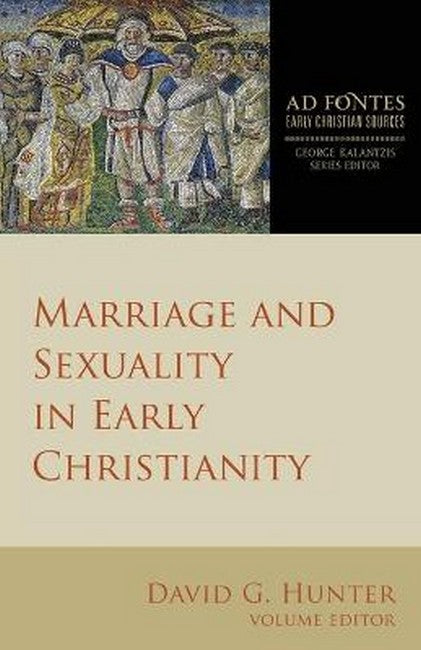David G. Hunter is Cottrill-Rolfes Chair of Catholic Studies at the University of Kentucky. His research interests include early Christianity, patristics, and marriage and celibacy in the early church. He is author of Marriage, Celibacy, and Heresy in Ancient Christianity (2007) and coeditor of The Oxford Handbook of Early Christian Studies (2008).
Description
Series Foreword Preface Part One: Introduction 1. The New Testament Evidence 1.1 Jesus and the Gospels 1.2 Paul 1.3 Later New Testament Writings 2. The Greco-Roman Environment 2.1 Marriage as a Legal Institution 2.2 Moral and Philosophical Ideals 2.3 Christian Responses: The Greek Apologists 3. Second and Third Centuries 3.1 Divorce and Remarriage 3.2 Christian Radicals: Marcion and the "Encratites" 3.3 Heresiology and the Emergence of "Proto-Orthodoxy" 4. The Post-Constantinian Church 4.1 From the Desert to the City: John Chrysostom 4.2 Western Controversies: From Jovinian to Augustine 4.3 The "Christianization" of Marriage: Poems, Laws, and Liturgies Part Two: Texts and Translations 1. Hermas, The Shepherd (Mandate 4) 2. Tertullian, To His Wife; An Exhortation to Chastity; On Monogamy 3. Clement of Alexandria, The Instructor, Book 2; Miscellanies, Book 2; Miscellanies, Book 3 4. Acts of Thomas, Act 1 5. Methodius of Olympus, Symposium, Discourse 2 6. Lactantius, Divine Institutes, Book 6 7. John Chrysostom, Homily 20 on Ephesians 8. Ambrosiaster, Commentary on 1 Corinthians 7 9. Jerome, Against Jovinian Book 1 10. Pelagius, Letter to the Matron Celantia 11. Augustine, The Good of Marriage; Sermon 354A; Letter 6* to Atticus 12. Paulinus of Nola: Carmen 25 13. Ecclesiastical Legislation: Canons of the Council of Elvira; Basil of Caesarea, Canonical Epistles 14. Two Nuptial Blessings: Verona Sacramentary; Hadrianum Bibliography Primary Sources Secondary Sources Indexes Index of Names and Subjects Index of Scripture

